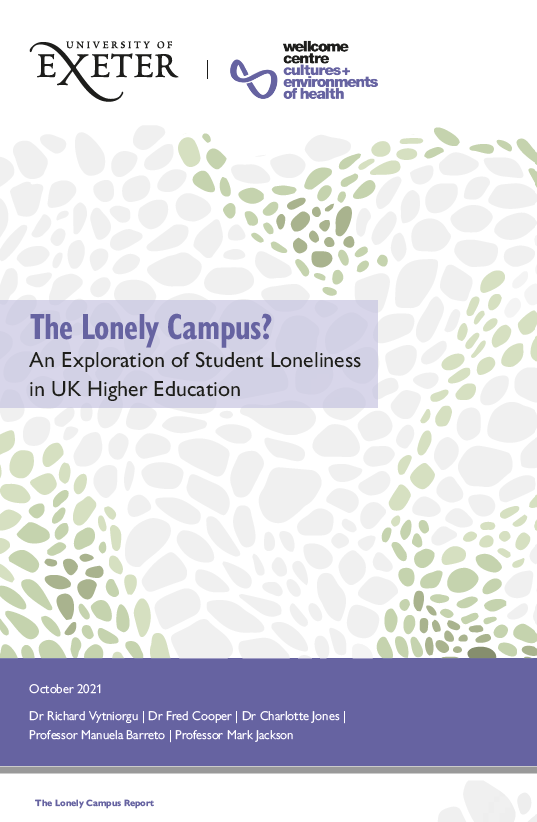
-
Download document
Inglés (pdf, 3,05 MB)
The Lonely Campus? An Exploration of Student Loneliness in UK Higher Education
Student loneliness is an increasingly important mental health issue that has been found to negatively impact academic and social adjustment to life at university (1).
Loneliness appears to be a particularly significant challenge for UK universities. In a 2017 survey by Soxedo, for example, 46% of UK university students admitted to experiencing loneliness at university, compared to 32% of students in the rest of the world (2).
Contrary to popular opinion, which suggests that older people are more likely to experience loneliness than younger populations, recent research suggests that younger people are likely to experience loneliness ‘more acutely and painfully’ than older cohorts, possibly due to the number of transitions faced by young people during adolescence and young adulthood (3). An AXA poll found that those aged 18-24 were more likely to experience loneliness ‘most of the time’ in comparison to respondents aged 70 and over (4). These figures indicate that the loneliness experienced by students is a sector-wide problem that requires addressing not only in universities, but across society as a whole.
This study on student loneliness at University of Exeter campuses suggests that student loneliness is a multi-faceted experience, affected by multiple dimensions of life at university. Three key components are discussed in this report. First, students report the need to be authentic with themselves and with other students. This relates to preoccupations with emerging and transformative identity as students negotiate life stage transitions, geographical relocation, and contact with new people and social groups. Second, university infrastructure (such as the university year structure), built environment, and accommodation create certain expectations of how student life should progress which, when unfulfilled, create further loneliness. Third, the students interviewed felt uneasy that opportunities for community and relationships tended to revolve around the university. They expressed a desire to feel more connected to civic and community societies and activities that could help them feel more linked to life beyond the university in Exeter.
These are the primary themes highlighted by this study. They pre-date the COVID-19 pandemic but will remain pertinent once the impact of the pandemic begins to recede and students return to a semblance of normal university life. Our follow-up research shows the pandemic did impact students’ sense of loneliness, particularly in missing the day-to-day human contact that normal life on campus can offer. Students felt that their work patterns and spaces were disrupted, but that the best kind of university support came from their immediate educational providers (i.e. their Departments), rather than from central communications sent to the student and staff population as a whole. This report offers twelve recommendations for preventing and mitigating student loneliness on campus in ways that respond to each of the three core themes arising from the workshops with students that took place in the autumn of 2019 and in April 2020.
References:
(1) Wohn & LaRose, 2014; Vasileiou et al., 2019.
(2) Bhaiyat et al., 2018.
(3) Vasileiou et al., 2019, p. 22; Rokach, 2000; Cutrona, 1982; Ponzetti, 1990.
(4) Bhaiyat et al., 2018.




